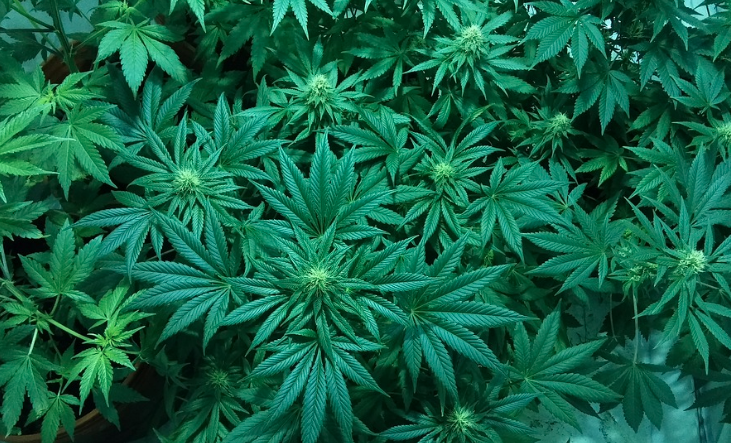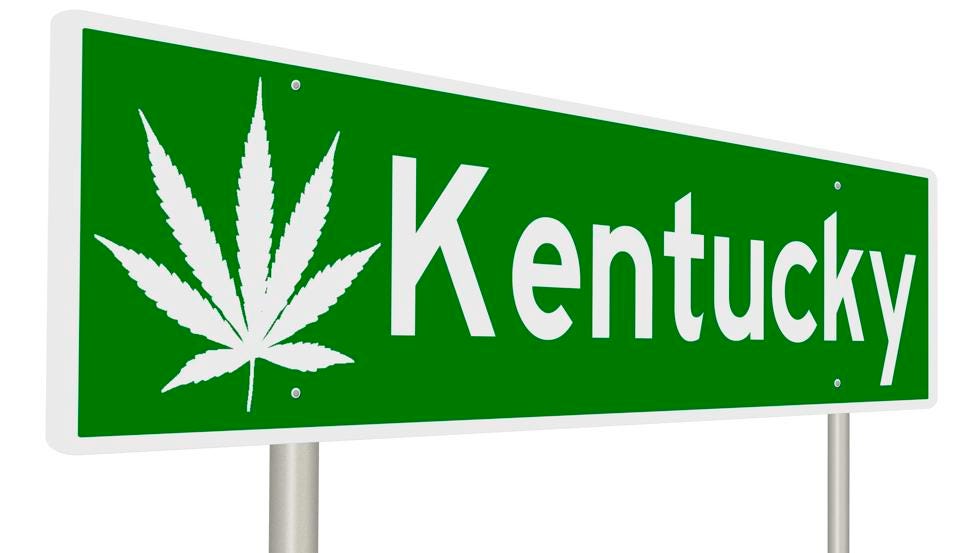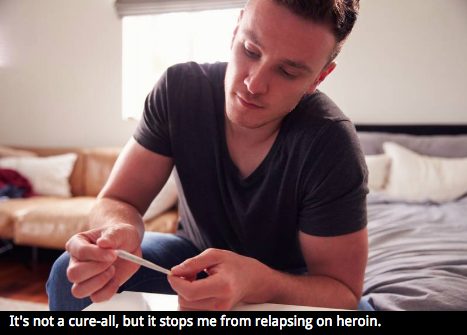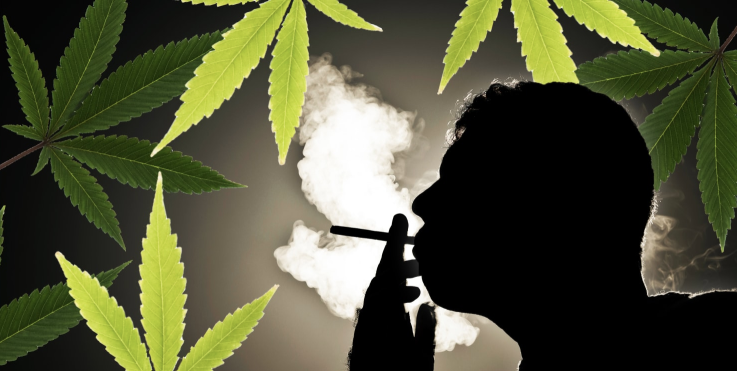High at 9 News
NEWS
Dr. Sanjay Gupta airs a groundbreaking documentary on Marijuana
Watch Dr. Sanjay Gupta's groundbreaking documentary "WEED" on CNN.
(CNN) -- Over the last year, I have been working on a new documentary called "Weed." The title "Weed" may sound cavalier, but the content is not.
I traveled around the world to interview medical leaders, experts, growers and patients. I spoke candidly to them, asking tough questions. What I found was stunning.
Long before I began this project, I had steadily reviewed the scientific literature on medical marijuana from the United States and thought it was fairly unimpressive. Reading these papers five years ago, it was hard to make a case for medicinal marijuana. I even wrote about this in a TIME magazine article, back in 2009, titled "Why I would Vote No on Pot."
Well, I am here to apologize.
I apologize because I didn't look hard enough, until now. I didn't look far enough. I didn't review papers from smaller labs in other countries doing some remarkable research, and I was too dismissive of the loud chorus of legitimate patients whose symptoms improved on cannabis.
Instead, I lumped them with the high-visibility malingerers, just looking to get high. I mistakenly believed the Drug Enforcement Agency listed marijuana as a schedule 1 substance because of sound scientific proof. Surely, they must have quality reasoning as to why marijuana is in the category of the most dangerous drugs that have "no accepted medicinal use and a high potential for abuse."
They didn't have the science to support that claim, and I now know that when it comes to marijuana neither of those things are true. It doesn't have a high potential for abuse, and there are very legitimate medical applications. In fact, sometimes marijuana is the only thing that works. Take the case ofCharlotte Figi, who I met in Colorado. She started having seizures soon after birth. By age 3, she was having 300 a week, despite being on seven different medications. Medical marijuana has calmed her brain, limiting her seizures to 2 or 3 per month.
I have seen more patients like Charlotte first hand, spent time with them and come to the realization that it is irresponsible not to provide the best care we can as a medical community, care that could involve marijuana.
We have been terribly and systematically misled for nearly 70 years in the United States, and I apologize for my own role in that.
I hope this article and upcoming documentary will help set the record straight.
On August 14, 1970, the Assistant Secretary of Health, Dr. Roger O. Egeberg wrote a letter recommending the plant, marijuana, be classified as a schedule 1 substance, and it has remained that way for nearly 45 years. My research started with a careful reading of that decades old letter. What I found was unsettling. Egeberg had carefully chosen his words:
"Since there is still a considerable void in our knowledge of the plant and effects of the active drug contained in it, our recommendation is that marijuana be retained within schedule 1 at least until the completion of certain studies now underway to resolve the issue."
Not because of sound science, but because of its absence, marijuana was classified as a schedule 1 substance. Again, the year was 1970. Egeberg mentions studies that are underway, but many were never completed. As my investigation continued, however, I realized Egeberg did in fact have important research already available to him, some of it from more than 25 years earlier.
High risk of abuse
In 1944, New York Mayor Fiorello LaGuardia commissioned research to be performed by the New York Academy of Science. Among their conclusions: they found marijuana did not lead to significant addiction in the medical sense of the word. They also did not find any evidence marijuana led to morphine, heroin or cocaine addiction.
We now know that while estimates vary, marijuana leads to dependence in around 9 to 10% of its adult users. By comparison, cocaine, a schedule 2 substance "with less abuse potential than schedule 1 drugs" hooks 20% of those who use it. Around 25% of heroin users become addicted.
The worst is tobacco, where the number is closer to 30% of smokers, many of whom go on to die because of their addiction.
There is clear evidence that in some people marijuana use can lead to withdrawal symptoms, including insomnia, anxiety and nausea. Even considering this, it is hard to make a case that it has a high potential for abuse. The physical symptoms of marijuana addiction are nothing like those of the other drugs I've mentioned. I have seen the withdrawal from alcohol, and it can be life threatening.
I do want to mention a concern that I think about as a father. Young, developing brains are likely more susceptible to harm from marijuana than adult brains. Some recent studies suggest that regular use in teenage years leads to a permanent decrease in IQ. Other research hints at a possible heightened risk of developing psychosis.
Much in the same way I wouldn't let my own children drink alcohol, I wouldn't permit marijuana until they are adults. If they are adamant about trying marijuana, I will urge them to wait until they're in their mid-20s when their brains are fully developed.
Medical benefit
While investigating, I realized something else quite important. Medical marijuana is not new, and the medical community has been writing about it for a long time. There were in fact hundreds of journal articles, mostly documenting the benefits. Most of those papers, however, were written between the years 1840 and 1930. The papers described the use of medical marijuana to treat "neuralgia, convulsive disorders, emaciation," among other things.
A search through the U.S. National Library of Medicine this past year pulled up nearly 20,000 more recent papers. But the majority were research into the harm of marijuana, such as "Bad trip due to anticholinergic effect of cannabis," or "Cannabis induced pancreatitits" and "Marijuana use and risk of lung cancer."
In my quick running of the numbers, I calculated about 6% of the current U.S. marijuana studies investigate the benefits of medical marijuana. The rest are designed to investigate harm. That imbalance paints a highly distorted picture.
The challenges of marijuana research
To do studies on marijuana in the United States today, you need two important things.
First of all, you need marijuana. And marijuana is illegal. You see the problem. Scientists can get research marijuana from a special farm in Mississippi, which is astonishingly located in the middle of the Ole Miss campus, but it is challenging. When I visited this year, there was no marijuana being grown.
The second thing you need is approval, and the scientists I interviewed kept reminding me how tedious that can be. While a cancer study may first be evaluated by the National Cancer Institute, or a pain study may go through the National Institute for Neurological Disorders, there is one more approval required for marijuana: NIDA, the National Institute on Drug Abuse. It is an organization that has a core mission of studying drug abuse, as opposed to benefit.
Stuck in the middle are the legitimate patients who depend on marijuana as a medicine, oftentimes as their only good option.
Keep in mind that up until 1943, marijuana was part of the United States drug pharmacopeia. One of the conditions for which it was prescribed was neuropathic pain. It is a miserable pain that's tough to treat. My own patients have described it as "lancinating, burning and a barrage of pins and needles." While marijuana has long been documented to be effective for this awful pain, the most common medications prescribed today come from the poppy plant, including morphine, oxycodone and dilaudid.
Here is the problem. Most of these medications don't work very well for this kind of pain, and tolerance is a real problem.
Most frightening to me is that someone dies in the United Statesevery 19 minutes from a prescription drug overdose, mostly accidental. Every 19 minutes. It is a horrifying statistic. As much as I searched, I could not find a documented case of death from marijuana overdose.
It is perhaps no surprise then that 76% of physicians recentlysurveyed said they would approve the use of marijuana to help ease a woman's pain from breast cancer.
When marijuana became a schedule 1 substance, there was a request to fill a "void in our knowledge." In the United States, that has been challenging because of the infrastructure surrounding the study of an illegal substance, with a drug abuse organization at the heart of the approval process. And yet, despite the hurdles, we have made considerable progress that continues today.
Looking forward, I am especially intrigued by studies like those in Spain and Israel looking at the anti-cancer effects of marijuana and its components. I'm intrigued by the neuro-protective study by Lev Meschoulam in Israel, and research in Israel and the United States on whether the drug might help alleviate symptoms of PTSD. I promise to do my part to help, genuinely and honestly, fill the remaining void in our knowledge.
Citizens in 20 states and the District of Columbia have now voted to approve marijuana for medical applications, and more states will be making that choice soon. As for Dr. Roger Egeberg, who wrote that letter in 1970, he passed away 16 years ago.
I wonder what he would think if he were alive today.
Watch Dr. Sanjay Gupta's groundbreaking documentary "WEED" on CNN.
(CNN) -- Over the last year, I have been working on a new documentary called "Weed." The title "Weed" may sound cavalier, but the content is not.
I traveled around the world to interview medical leaders, experts, growers and patients. I spoke candidly to them, asking tough questions. What I found was stunning.
Long before I began this project, I had steadily reviewed the scientific literature on medical marijuana from the United States and thought it was fairly unimpressive. Reading these papers five years ago, it was hard to make a case for medicinal marijuana. I even wrote about this in a TIME magazine article, back in 2009, titled "Why I would Vote No on Pot."
Well, I am here to apologize.
I apologize because I didn't look hard enough, until now. I didn't look far enough. I didn't review papers from smaller labs in other countries doing some remarkable research, and I was too dismissive of the loud chorus of legitimate patients whose symptoms improved on cannabis.
Instead, I lumped them with the high-visibility malingerers, just looking to get high. I mistakenly believed the Drug Enforcement Agency listed marijuana as a schedule 1 substance because of sound scientific proof. Surely, they must have quality reasoning as to why marijuana is in the category of the most dangerous drugs that have "no accepted medicinal use and a high potential for abuse."
They didn't have the science to support that claim, and I now know that when it comes to marijuana neither of those things are true. It doesn't have a high potential for abuse, and there are very legitimate medical applications. In fact, sometimes marijuana is the only thing that works. Take the case ofCharlotte Figi, who I met in Colorado. She started having seizures soon after birth. By age 3, she was having 300 a week, despite being on seven different medications. Medical marijuana has calmed her brain, limiting her seizures to 2 or 3 per month.
I have seen more patients like Charlotte first hand, spent time with them and come to the realization that it is irresponsible not to provide the best care we can as a medical community, care that could involve marijuana.
We have been terribly and systematically misled for nearly 70 years in the United States, and I apologize for my own role in that.
I hope this article and upcoming documentary will help set the record straight.
On August 14, 1970, the Assistant Secretary of Health, Dr. Roger O. Egeberg wrote a letter recommending the plant, marijuana, be classified as a schedule 1 substance, and it has remained that way for nearly 45 years. My research started with a careful reading of that decades old letter. What I found was unsettling. Egeberg had carefully chosen his words:
"Since there is still a considerable void in our knowledge of the plant and effects of the active drug contained in it, our recommendation is that marijuana be retained within schedule 1 at least until the completion of certain studies now underway to resolve the issue."
Not because of sound science, but because of its absence, marijuana was classified as a schedule 1 substance. Again, the year was 1970. Egeberg mentions studies that are underway, but many were never completed. As my investigation continued, however, I realized Egeberg did in fact have important research already available to him, some of it from more than 25 years earlier.
High risk of abuse
In 1944, New York Mayor Fiorello LaGuardia commissioned research to be performed by the New York Academy of Science. Among their conclusions: they found marijuana did not lead to significant addiction in the medical sense of the word. They also did not find any evidence marijuana led to morphine, heroin or cocaine addiction.
We now know that while estimates vary, marijuana leads to dependence in around 9 to 10% of its adult users. By comparison, cocaine, a schedule 2 substance "with less abuse potential than schedule 1 drugs" hooks 20% of those who use it. Around 25% of heroin users become addicted.
The worst is tobacco, where the number is closer to 30% of smokers, many of whom go on to die because of their addiction.
There is clear evidence that in some people marijuana use can lead to withdrawal symptoms, including insomnia, anxiety and nausea. Even considering this, it is hard to make a case that it has a high potential for abuse. The physical symptoms of marijuana addiction are nothing like those of the other drugs I've mentioned. I have seen the withdrawal from alcohol, and it can be life threatening.
I do want to mention a concern that I think about as a father. Young, developing brains are likely more susceptible to harm from marijuana than adult brains. Some recent studies suggest that regular use in teenage years leads to a permanent decrease in IQ. Other research hints at a possible heightened risk of developing psychosis.
Much in the same way I wouldn't let my own children drink alcohol, I wouldn't permit marijuana until they are adults. If they are adamant about trying marijuana, I will urge them to wait until they're in their mid-20s when their brains are fully developed.
Medical benefit
While investigating, I realized something else quite important. Medical marijuana is not new, and the medical community has been writing about it for a long time. There were in fact hundreds of journal articles, mostly documenting the benefits. Most of those papers, however, were written between the years 1840 and 1930. The papers described the use of medical marijuana to treat "neuralgia, convulsive disorders, emaciation," among other things.
A search through the U.S. National Library of Medicine this past year pulled up nearly 20,000 more recent papers. But the majority were research into the harm of marijuana, such as "Bad trip due to anticholinergic effect of cannabis," or "Cannabis induced pancreatitits" and "Marijuana use and risk of lung cancer."
In my quick running of the numbers, I calculated about 6% of the current U.S. marijuana studies investigate the benefits of medical marijuana. The rest are designed to investigate harm. That imbalance paints a highly distorted picture.
The challenges of marijuana research
To do studies on marijuana in the United States today, you need two important things.
First of all, you need marijuana. And marijuana is illegal. You see the problem. Scientists can get research marijuana from a special farm in Mississippi, which is astonishingly located in the middle of the Ole Miss campus, but it is challenging. When I visited this year, there was no marijuana being grown.
The second thing you need is approval, and the scientists I interviewed kept reminding me how tedious that can be. While a cancer study may first be evaluated by the National Cancer Institute, or a pain study may go through the National Institute for Neurological Disorders, there is one more approval required for marijuana: NIDA, the National Institute on Drug Abuse. It is an organization that has a core mission of studying drug abuse, as opposed to benefit.
Stuck in the middle are the legitimate patients who depend on marijuana as a medicine, oftentimes as their only good option.
Keep in mind that up until 1943, marijuana was part of the United States drug pharmacopeia. One of the conditions for which it was prescribed was neuropathic pain. It is a miserable pain that's tough to treat. My own patients have described it as "lancinating, burning and a barrage of pins and needles." While marijuana has long been documented to be effective for this awful pain, the most common medications prescribed today come from the poppy plant, including morphine, oxycodone and dilaudid.
Here is the problem. Most of these medications don't work very well for this kind of pain, and tolerance is a real problem.
Most frightening to me is that someone dies in the United Statesevery 19 minutes from a prescription drug overdose, mostly accidental. Every 19 minutes. It is a horrifying statistic. As much as I searched, I could not find a documented case of death from marijuana overdose.
It is perhaps no surprise then that 76% of physicians recentlysurveyed said they would approve the use of marijuana to help ease a woman's pain from breast cancer.
When marijuana became a schedule 1 substance, there was a request to fill a "void in our knowledge." In the United States, that has been challenging because of the infrastructure surrounding the study of an illegal substance, with a drug abuse organization at the heart of the approval process. And yet, despite the hurdles, we have made considerable progress that continues today.
Looking forward, I am especially intrigued by studies like those in Spain and Israel looking at the anti-cancer effects of marijuana and its components. I'm intrigued by the neuro-protective study by Lev Meschoulam in Israel, and research in Israel and the United States on whether the drug might help alleviate symptoms of PTSD. I promise to do my part to help, genuinely and honestly, fill the remaining void in our knowledge.
Citizens in 20 states and the District of Columbia have now voted to approve marijuana for medical applications, and more states will be making that choice soon. As for Dr. Roger Egeberg, who wrote that letter in 1970, he passed away 16 years ago.
I wonder what he would think if he were alive today.
NBA to allow players to promote, invest in and consume cannabisApril 3, 2023 - MJ Biz daily
A groundbreaking bargaining agreement between the National Basketball Association and its players association would allow players to invest in and promote cannabis companies.
The tentative deal – which must be ratified by the union and team governors – would also allow players to consume marijuana given that the substance would be removed from the league’s drug testing program, according to The Athletic sports media site. The National Basketball Players Association confirmed that a tentative collective bargaining agreement had been reached. “Specific details will be made available once a term sheet is finalized,” the group said in a statement. The proposed labor agreement would offer players another investment opportunity, NBA and WNBA teams, The Athletic reported. The tentative agreement would provide a major endorsement for the cannabis industry and would open up a new source of funds for marijuana companies, which have been struggling in the face of a tight funding market. The proposed seven-year agreement would also mark a first for the NBA, which has previously penalized players for consuming marijuana and barred them from participating in cannabis sponsorships or business opportunities In a recent appearance on NPR, Harrington talked about what basketball and marijuana have in common. “Sports definitely heals,” he said. “Every time it seems like our country goes through something, sports is the kind of thing that brings it back together. “And I feel the same thing about the cannabis plant. I really feel like the cannabis plant is a natural healer, and it fosters community.” Is tide turning in pro sports? As an increasing number of states have legalized medical and adult-use marijuana, professional sports leagues have been gradually easing their once-zero tolerance attitudes toward the substance. |
Can I travel with weed?
|
March 31, 2023 - NORML: Democratic Gov. Andy Beshear signed legislation (Senate Bill 47) into law today legalizing the production, distribution, and use of medical cannabis by authorized patients. Kentucky is the 38th state to enact comprehensive medical cannabis access legislation.
Kentucky NORML’s Lauren and Matthew Bratcher meet with Gov. Andy Beshear at the start of the 2023 legislative session. Senate Bill 47 directs the state’s Cabinet for Health and Family Services to implement a medical cannabis access program. Under the plan, patients with chronic pain, epilepsy, post-traumatic stress, spasticity, and other designated conditions will be able to obtain an uninterrupted 30-day supply of medical cannabis. Qualified patients who test positive for the presence of carboxy-THC on a urine drug test “shall not be considered to be under the influence.” The bill further adds, “A registered qualified patient or visiting qualified patient who uses medicinal cannabis shall be afforded all the same rights under state and local law … as the individual would have been afforded if he or she were solely prescribed pharmaceutical medications as they pertain to drug testing required by any state or local law.” Patients cannot face discrimination with respect to medical procedures (e.g., organ transplants), child visitation, or school enrollment solely due to their medical cannabis patient status. Home cultivation of cannabis is not permitted under the legislation. Regulations governing the program would need to be finalized by January 1, 2024. The program is expected to be operational on January 1, 2025. |
FDA approves marketing of plant-derived marijuana medicine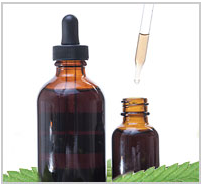
June 25, 2018 - NORML
Regulators at the US Food and Drug Administration today granted market approval for Epidiolex, a prescription medicine containing a standardized formulation of plant-derived cannabidiol (CBD), for the explicit treatment of two rare forms of severe epilepsy: Lennox-Gastaut syndrome and Dravet syndrome. The FDA’s decision was not unexpected, as the proprietary extract formulation — developed by the British biotechnology firm GW Pharmaceuticals — had previously demonstrated safety and clinical efficacy at reducing seizure frequency in several placebo-controlled trials. Epidiolex had previously received Fast Track Designation and Orphan Drug Status from the FDA. It is the fourth marijuana-based medicine to receive US FDA approval — joining dronabinol (aka Marinol), nabilone (aka Cesamet), and liquid synthetic THC (aka Syndros). However, Epidiolex is the first FDA-approved medicine containing plant-derived, non-synthetic cannabinoids. Commenting on the agency’s decision, NORML Deputy Director Paul Armentano said: “The FDA’s approval of this plant-derived medicine provides an additional option to patients seeking the therapeutic benefits of cannabis. However, it remains to be seen whether physicians will be comfortable prescribing this new agent to those patients who may benefit from it, and whether it will be priced in a range that patients may afford.” According to the New York Times, analysts expect Epidiolex to cost $2,500 to $5,000 a month. READ MORE |
|
EVENTS
Mailing Address: MediCann 1336 Willard Street, C • San Francisco, CA 94117
Important Disclaimer!
The information contained in this site does not intend to replace any medical advice or care by a trained physician.
Any use of this information is solely the the responsibility of the user.
Important Disclaimer!
The information contained in this site does not intend to replace any medical advice or care by a trained physician.
Any use of this information is solely the the responsibility of the user.
© COPYRIGHT 2015. ALL RIGHTS RESERVED.


